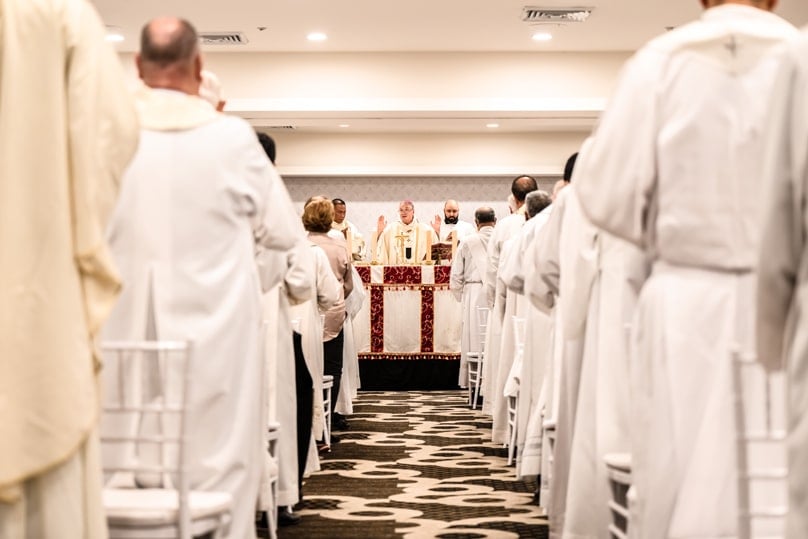
What is synodality? Why is it that a three-day clergy conference exclusively dedicated to the topic, whilst it certainly helped, was still not enough to clarify the meaning of synodality to the satisfaction of all the participants?
A key insight into the elusiveness of synodality was offered, perhaps inadvertently, by one of the four clerics who gave personal testimonies between the main sessions on synodality.
Ordained at 33, the particular cleric said that he used to be a “cocky priest” who lacked in self-awareness. But a few decades on in his priesthood, he now aspires to be “humble, gentle and meek, so as to remain listening.”
What if synodality was a matter of virtue more than that of policy? A prideful person would struggle to understand humility. A corrupt person would have little or no clue about the liberating power of integrity, and so on.
The depth of understanding about a virtue tends to be proportional to one’s own growth in that virtue, just as the depth of meaning derived from the parables of Jesus tends to be proportional to one’s own spiritual development.
Herein lies the great challenge of synodality: the best way to grow in the virtue of synodality is what tends to be most avoided—namely, humbly acknowledging the failures of synodality within one’s own ecclesial life.
By contrast, how easy for us to think of, firstly, how synodal we think we are and, secondly, how unsynodal we think others are! In the meantime, what is being neglected is the synodal pathway of courageous and gentle self-critique.
So, it is no wonder that, whenever synodality is discussed, there tends to be a lot of “beating-around-the-bush” or excessive focus on how to further establish policies and committees, many of which bypass honest introspection.
Synodality is a journey which follows the inner logic of the Easter proclamation, namely, that we killed God, who responded with an offer of new life by rising from the dead. Therefore the key to the new life of the resurrection is:
Admission of guilt in a prayerful environment in which mercy is contemplated. This then leads to a collective renewal in how we think, speak and act in the life of the church, starting from the individual soul.
So, we ask: In all of the countless encounters and meetings I have been part of, what prevented me from better fostering a culture of authentic dialogue? How has lack of synodality in the direction and style of my leadership discouraged or excluded others, to the detriment of the Body of Christ?
